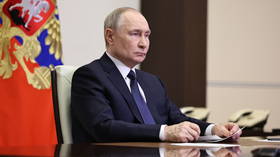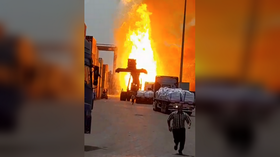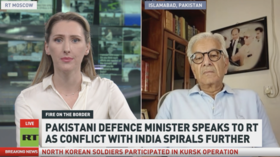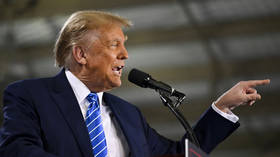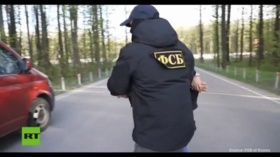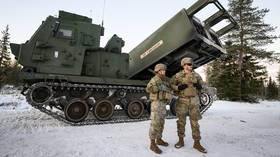No proof, but ‘Russian hackers’: CNN blunders with report on ‘breach’ at NYT – not even asking NYT
Another round of hysteria blaming shady Kremlin hackers has taken over western media after CNN reported that FBI is probing “cyber breaches” at The New York Times. The NYT then disputed the report, saying its Moscow bureau has been attacked but not hacked.
The story originated with CNN, which was quick to point to “hackers thought to be working for Russian intelligence” when reporting on what the NYT called a cyberattack. CNN even cited an unnamed source, stating that the FBI is already investigating the incident.
The NYT said that the cyberattack did in fact happen, but the Moscow server was not penetrated.
“We are constantly monitoring our systems with the latest available intelligence and tools,” said a spokeswoman for The New York Times, Eileen Murphy. “We have seen no evidence that any of our internal systems, including our systems in the Moscow bureau, have been breached or compromised.”
The outlet has denied the CNN claim that the company hired outside firms to investigate the incident.
RT contacted the FBI, which was not able to confirm the investigation or provide any details on the report.
“We don’t have anything to provide you on this,” an FBI spokesperson told RT via email.
While CNN was quick to present the reported cyberattack as a government-sponsored operation against some Western media – other “victims” have not been named – websites of media outlets often become targets of Distributed Denial of Service (DDoS) attacks coming from different sources. By design, a DDoS attack is not capable of “breaching” anything, as it is directed at temporarily shutting down the bandwidth of a targeted website.
READ MORE: RT hit with string of cunning DDoS attacks
RT has experienced its share of massive cyberattacks, with some of the most powerful DDoS attacks happening this August. A particularly well-planned series of attacks saw RT’s internet provider and data centers in the US, Europe and Russia targeted.
Meanwhile, a similar accusation blaming Russia for the various cyberattacks was thrown around when the Democratic National Committee was hacked.
Around 20,000 DNC emails were made public by WikiLeaks on July 22. Its revelations included a close working relationship between the party and some mainstream media figures, as well as collusion with the Hillary Clinton campaign to sideline Bernie Sanders, her challenger for the presidential nomination.
Almost immediately after the DNC replaced Chairwoman Debbie Wasserman Schultz, she responded by accusing Russia of the hack and the leak.
US media picked up the accusations, reporting: “Russian Intelligence Hacked DNC Emails” (NBC), “Suspected Russian hack of DNC widens” (Yahoo News), “All Signs Point to Russia Being Behind the DNC Hack,” (Motherboard), “Evidence mounts linking DNC email hacker to Russia” (The Hill) and “What we know about Russia’s role in the DNC hack” (Politifact).
However, the media is yet to cite any actual evidence. In fact, the Obama administration has never publicly blamed the Russian government for that attack.
Meanwhile, the Kremlin dismissed the claims that Russia was behind DNC hack as “quite absurd,” with presidential spokesman Dmitry Peskov pointing out what he called the “American style” of casting blame first, then investigating afterward.
“We in Russia are used to investigating first, before accusing anyone of anything. We believe it is more logical and more correct,” Peskov said.
READ MORE: ‘Absurd’ election rhetoric: Kremlin, Assange slam Clinton for blaming DNC leaks on Russia
Critics believe that this game of blaming Russia comes from the American military-industrial complex that wants to see a new Cold War.
“This is an extent to try to create a new Cold War in my view. There is a lot of money involved in this. It is like fearmongering the entire public of the US to believe that we need to have another Cold War because the Russians are the bad guys. It is being done because of the military industrial complex. But, before we do anything like that, we need to prove it, and they haven’t done that,” former intelligence official Bill Binney told RT.
Other analysts said that blaming Russia was CNN’s cheap trick to attract attention.
“If you want to pique the interest of anybody, especially American or Western media, mention Russian anything,” legal aid and media analyst Lionel told RT.





